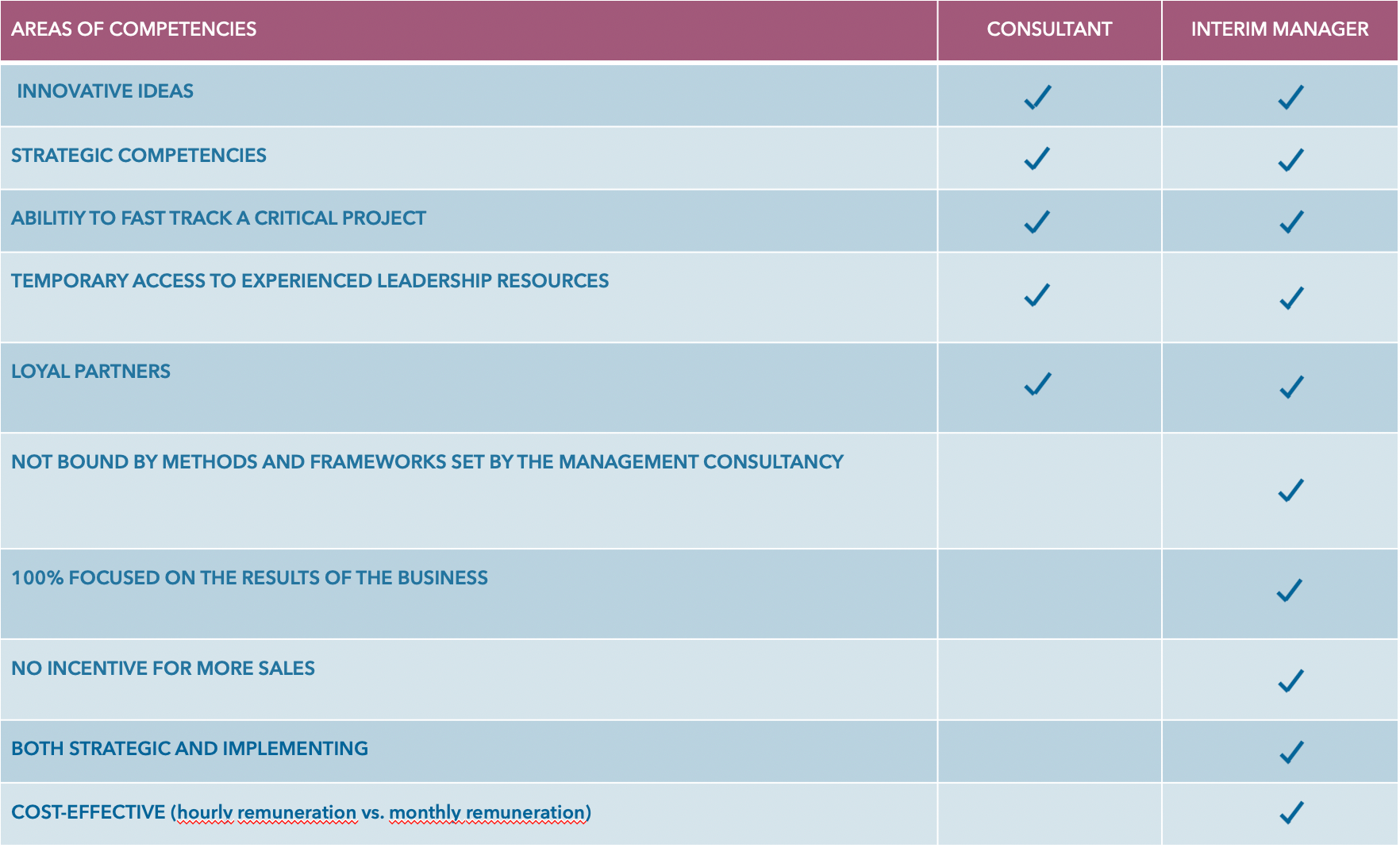What is the difference between hiring an interim manager and a management consultant?
Many companies are used to hiring consultants when a temporary assignment needs to be solved. But in the past year, Nextt Management has seen a growing trend that more companies are choosing to hire interim managers instead- and there are good reasons for it.
To understand why companies choose to hire an interim manager instead of a management consultant, you should understand the difference between the two.
We understand why there may be some confusion in seeing the difference between the two concepts and both terms can resemble one another a long way down the road; both in terms of competencies and execution. The common denominator of a management consultant and an interim manager is that they both bring with them strategic insights, work independently and have the ability to pinpoint the real challenges. Furthermore, businesses hire senior executives into their business for a limited period of time.
Although both have strategical competencies, innovative and have the ability to fast track a critical project, they do differentiate themselves in some other aspects:
Difference between an interim manager and a management consultant:
1. 100 % focus on company performance
The main difference is that the interim manager give his/her all to the company. When the interim manager starts at the company, then there is only one thing on the agenda, that is to successfully solve the assignment.
2. Not limited by frameworks and methods
An interim manager is not limited by methods and frameworks layed out by the management consultancy. There is not a “one size fits all” when it comes to the management of businesses, but instead the interim manager brings with him many years of managerial experiences that can be beneficial to the specific challenge that the businesses is faced with.
3.Loyal managerial partners
An interim manager reports directly to you as an employer and not through a third party agency. This means that as an employer you are well informed and no conflict of interest arises.
4. No incentive for more sales
The interim manager does not think of additional sales as there is no incentive for this. He is employed to solve the task in the short run and there is a common interest in getting 100% to the finish within the given time frame.
5. Strategic and implementation ready
An interim manager works as consultants on a strategic level. But where the consultant gets away when the report is handed over to the management, the interim manager opens up his sleeves and implements the necessary changes and adjustments for the company to succeed. Only when the company is successful is the interim manager a success.
6. Cost effective
An interim manager is most often associated with the company on a fixed monthly fee. I.e that the price is fixed no matter how many hours are spent on the task. Compared to regular consulting on an hourly basis, an interim manager is cheaper 9 out of 10 times. Click here to read about prices and deals.



